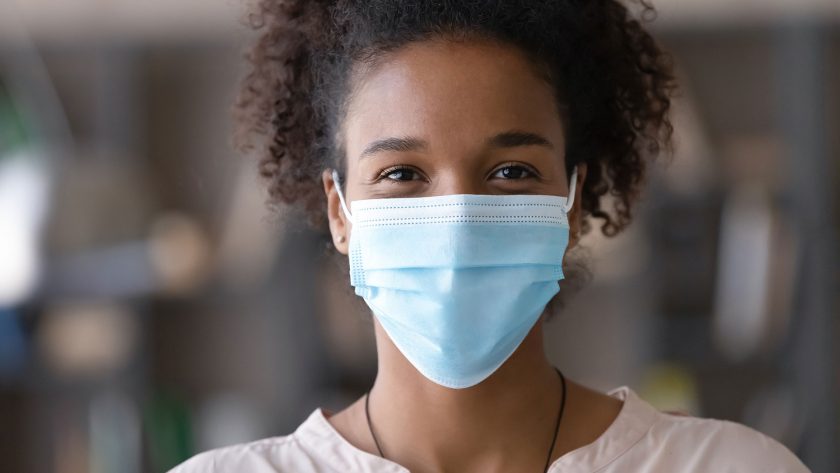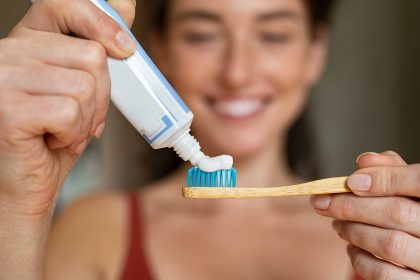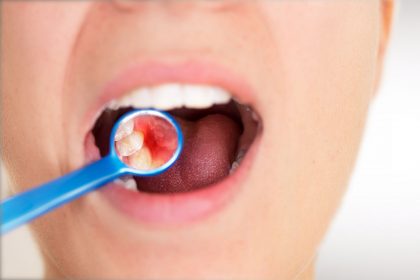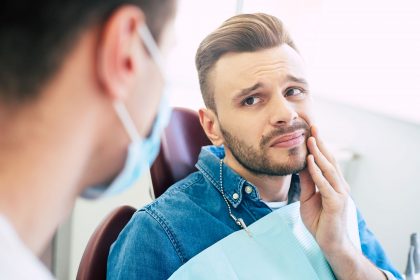We get it. We’re all tired of wearing masks. We want to breathe free and let the sun caress our cheeks. We want to eat popcorn in a crowded theater. We want to see your smile — the world could use that right about now.
But we wear masks because they work, and the time will come when we’ll need to put them on again. Coronavirus isn’t going anywhere. And hey, now monkeypox is airborne too.
Still, a lot of people are looking for reasons not to wear their masks — and one of the latest is mask mouth.
Mask mouth is not an officially recognized medical condition. It’s more of a collection of symptoms that dentists suggest could result from extensive mask wearing. Wearing a mask is known to cause dry mouth, which could be related to recent increases in cavities and gum disease cases. However, there are other pandemic-related factors that could be equally culpable — including worsening oral hygiene, poor diets, stress, excessive snacking, and fewer dental visits.
How do you get mask mouth?
Most conditions attributed to mask mouth are related to the drying out of the oral cavity. Normally, the mouth has a continuous flow of saliva, which helps to flush and balance bacteria. However, when people wear a mask they have a tendency to breathe through the mouth rather than through the nose. This causes surface dehydration, which is known to contribute to gingivitis, bad breath, fungal infestation, lip inflammation, dental plaque, and cavities.
Sounds pretty bad, right? Time to take off the mask?
Not so fast, buster. Remember, mask mouth is just one small part of the puzzle, and it’s only a concern if you have to spend long, uninterrupted stretches of time wearing one. And frankly, taking off your mask when you haven’t addressed the other important concerns, such as oral hygiene, diet, and skipped dental visits, is like putting perfume on a pig — and the pig probably has better breath!
If you’re required by law or company policy to wear a mask, then wear your mask. If you’re not required to wear your mask, but you’re in a situation where you’ll feel safer wearing it, then wear your mask. Don’t let fear of mask mouth dissuade you from protecting yourself from Covid or other diseases.
How can you counter the effects of wearing a mask?
The big culprit behind mask mouth is the drying out of the oral cavity. Saliva is vital for the protection of teeth and gums against bacteria. Without it, we’re more vulnerable to an array of oral health issues including infected gums, tooth decay, and bad breath.
In addition to drying out the oral cavity through mouth-breathing, mask use can also unintentionally discourage us from drinking enough water throughout the day, something that’s important for keeping the oral cavity clean and warding off long-term dental issues such as periodontal disease.
So it’s not surprising that keeping your mouth moist is an important part of countering mask mouth. But there’s plenty more you can do to step up your oral hygiene and make mask mouth practically inconsequential, no matter how long you have to keep your beautiful mug covered.
- Drink plenty of water
- Avoid sugary drinks
- Avoid sugary snacks
- Floss at least twice a day
- Brush your teeth for two minutes
- Brush at least twice a day
- Use a fluoridated toothpaste
- Chew gum with xylitol to help regulate salivary flow
- Continue your professional cleanings
How often should you change your mask?
Make sure your mask is fresh every time you wear it to avoid bacteria and other cooties. According to the Centers for Disease Control, masks can provide varying degrees of protection, with well-fitting N95s offering the most protection from Covid-19. If you’re wearing a well-fitted, multi-layered cloth mask, be sure to wash it daily, and have a few on rotation so you can alternate them. Basically, adopting a routine approach to cleanliness all around will help you eliminate the threat of mask mouth. Consult with your dentist immediately if you think you have mask mouth.
Lastly, if you’re a dental professional, it’s important to remind your patients to drink plenty of water throughout the day, and we ourselves must also remember to drink enough water to stay hydrated throughout those chaotic days. It’s important to take care of yourself, so you can continue to care for others.
NIH: https://www.ncbi.nlm.nih.gov/pmc/articles/PMC8072811/#sec3dot8-ijerph-18-04344




